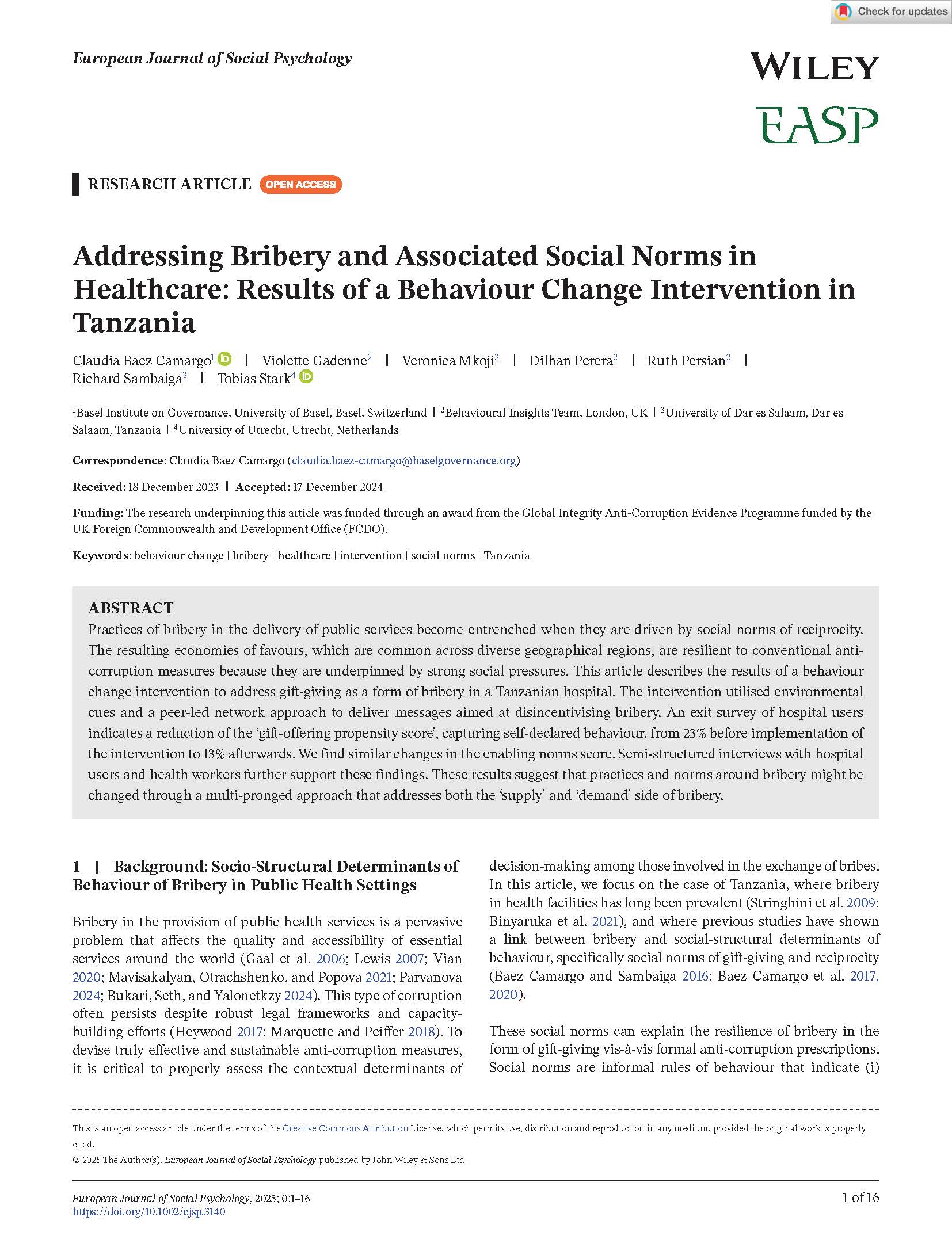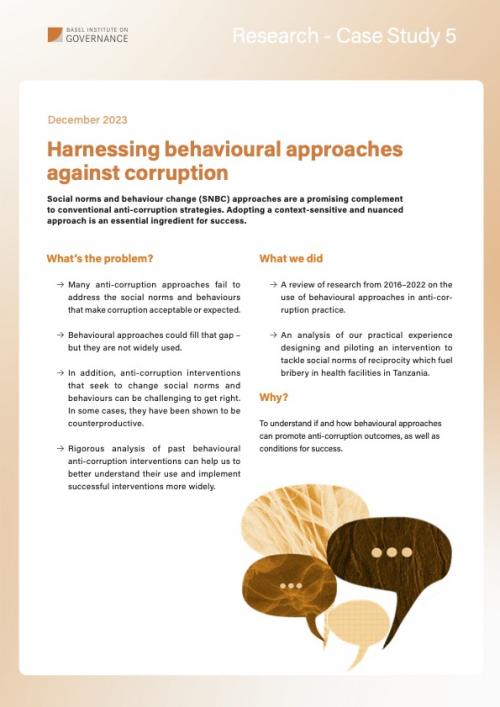Addressing Bribery and Associated Social Norms in Healthcare: Results of a Behaviour Change Intervention in Tanzania
This open-access, peer-reviewed journal article examines the results of a pilot behavioural intervention in Tanzania. The project tested a behavioural anti-corruption intervention to reduce bribery in a hospital. It targeted deeply ingrained social norms while also leveraging the social networks and influence of key staff members.
The research was funded by the Global Integrity Anti-Corruption Evidence Programme of the UK Foreign Commonwealth and Development Office (FCDO). It was a collaboration between the Basel Institute on Governance, the UK Behavioural Insights Team, the University of Dar es Salam and the University of Utrecht.
Abstract
Practices of bribery in the delivery of public services become entrenched when they are driven by social norms of reciprocity.
The resulting economies of favours, which are common across diverse geographical regions, are resilient to conventional anti-corruption measures because they are underpinned by strong social pressures.
This article describes the results of a behaviour change intervention to address gift-giving as a form of bribery in a Tanzanian hospital. The intervention utilised environmental cues and a peer-led network approach to deliver messages aimed at disincentivising bribery.
An exit survey of hospital users indicates a reduction of the ‘gift-offering propensity score’, capturing self-declared behaviour, from 23% before implementation of the intervention to 13% afterwards. We find similar changes in the enabling norms score.
Semi-structured interviews with hospital users and health workers further support these findings.
These results suggest that practices and norms around bribery might be changed through a multi-pronged approach that addresses both the ‘supply’ and ‘demand’ side of bribery.
Links and other languages




